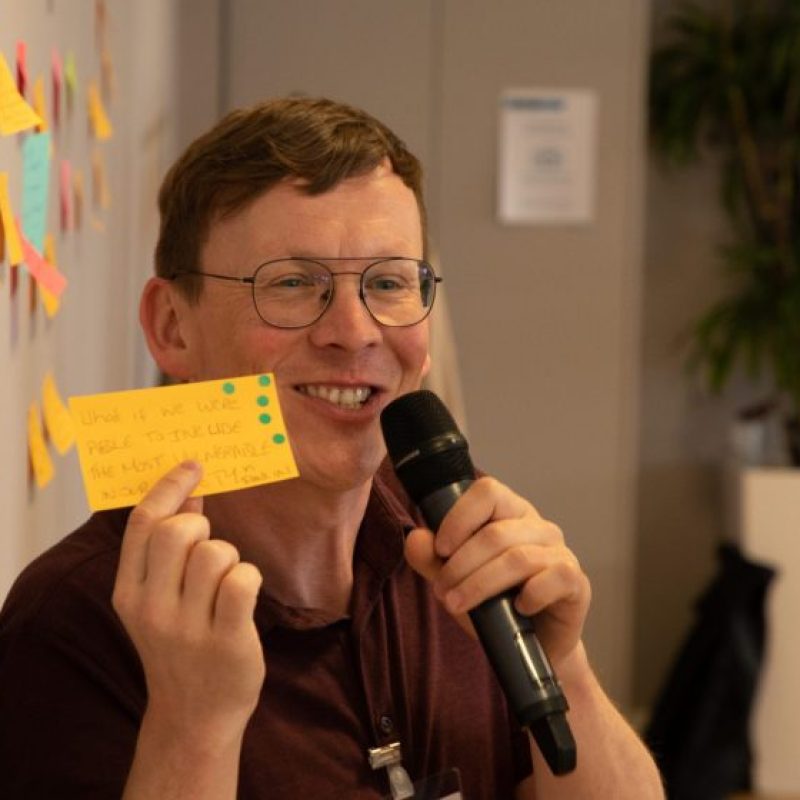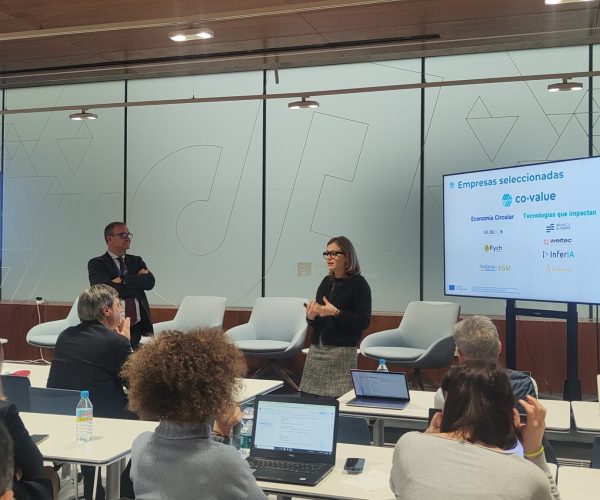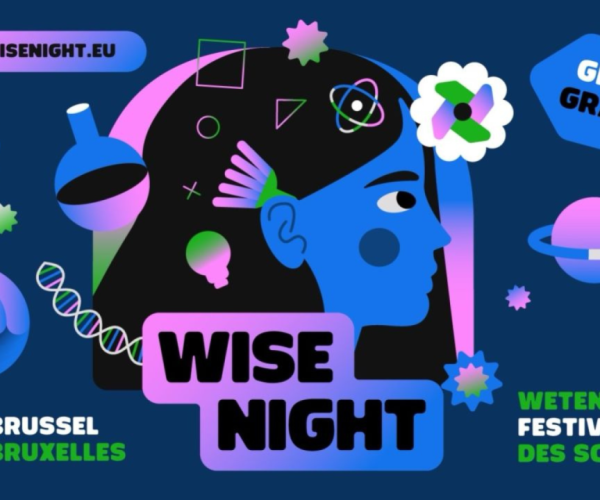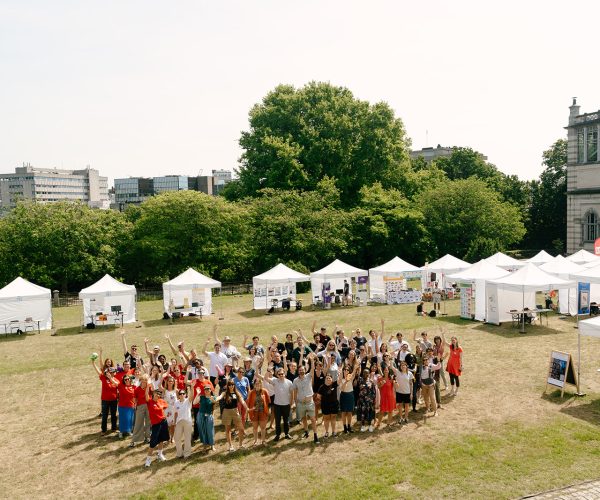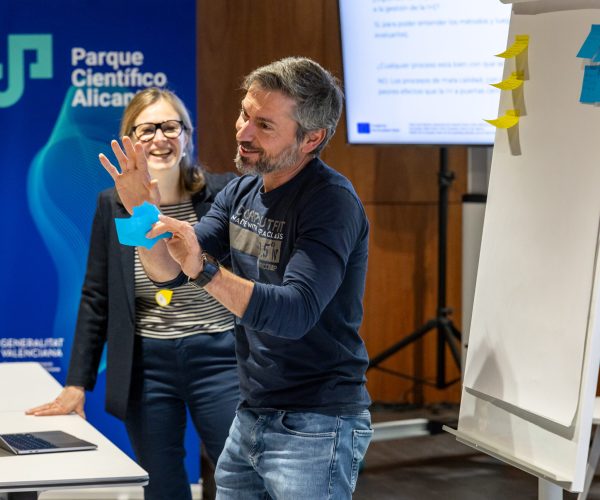The importance of citizen engagement has been increasingly acknowledged within the scientific field. Many consider it a vital ingredient to promote greater research quality and impact. Some even see it as a duty that researchers have towards society. For Michael Creek, Stickydot co-founder and lead facilitator, however, citizen engagement goes beyond that. “It’s about social justice,” he says, “making sure that underrepresented voices are not only equally represented in the process, but that they are empowered.”
When thinking back on his experiences with citizen engagement, one particular project came to Michael’s mind. Early in 2022, Michael, representing Stickydot, was invited to join that year’s edition of the ADAPT #DiscussAI Think-ins as an external evaluator. These Think-ins, which would span nearly one year and a half, brought together artificial intelligence (AI) researchers and the general public, promoting dialogue about AI. They were coordinated by ADAPT, Ireland’s world-leading research centre for AI-driven digital content technology.
Inclusion and social justice were placed right at the heart of this series of #DiscussAI Think-ins. This mindset led to the development of, for example, a session that was entirely focused on deaf and hard of hearing people. In the session, they tackled issues such as ensuring that AI software that translates sign language into speech takes into account the privacy of its users.
There was also a session focusing on elderly people, a demographic that is seriously at risk of missing out on the potential benefits of AI. Here, they focused on exploring the ways in which the capabilities of AI could be harnessed to support and empower older people during the process of ageing.
But the inclusion of these topics was not planned from the very beginning. Instead, it stemmed from the fact that the content of this series of Think-ins, as well as its expected outcomes, were entirely co-created. The organisers, with Michael involved, invited different stakeholders and Think-in participants to collaboratively define what AI issues should be addressed based on their most pressing concerns. Stickydot also decided to take a novel approach to the evaluation of the series: co-defining what would be evaluated, and how, with the Think-in stakeholders and participants.
This co-creation based approach inspired many changes to the programme, with a stronger emphasis on social justice. “The project already had its objectives more-or-less established. We knew, vaguely, that we wanted to explore what AI could mean for underrepresented groups,” Michael recalls. “But it wasn’t until we sat down with participants and stakeholders that it became very clear that this social justice angle to AI was what really mattered.
“It became clear that underrepresented groups absolutely had to have a say on what was going on with AI. So, this couldn’t just be business as usual… We needed to really make sure that we would make a difference.”
In the end, these co-created Think-ins gave participants the opportunity to not only learn about pressing AI issues, but also to be exposed to the perspectives of underrepresented communities. They were a safe space in which participants felt emboldened to speak their minds on the issue. Citizens, researchers, policymakers, and industry representatives collaboratively explored meaningful and relevant topics, opening up opportunities for discussion, knowledge building, and opinion forming.
“This was really inspiring to me,” Michael said. “This is why we engage in the first place.” Public engagement with research is a process that should be affirmative in nature. And co-creation is a vital tool to achieve this.
“If we have these debates in a way that just reflects the way in which society is already structured, then the existing power dynamics will be reinforced and underrepresented voices will continue to be underrepresented. Whereas, with projects like the Think-ins, we can put those voices at the centre of discussions, to work against the existing power dynamics that society imposes,” he explained. “It feels like we’re doing something right.”
Read our full Evaluation Report of the 2022-2023 #DiscussAI Think-ins.
Written by Alexandre Torres
